- Home
- Peter Lerangis
Lab 6 Page 4
Lab 6 Read online
Page 4
“John …” said Mrs. Hughes anxiously.
But Sam’s dad was placing the cap on him.
They’re my parents.
They love me.
The graphs on the monitor instantly sprang to life — jagged, pulsating, and violent-looking.
Sam felt his eyes bulge. He felt warm spots of perspiration on his upper lip.
“WHY … ARE … YOU DOING … THIS?”
This isn’t HELPING me. It’s making everything worse, and it’s DAD—Dad’s idea, he doesn’t know what he’s doing, THAT’S why he was fired from those other jobs.
Sam reached up to pull off the cap. But he was losing balance, losing consciousness, and his fingers felt dead.
He looked desperately at his mom. “Can … you … ?”
Swallowing hard, she glanced at her husband, confusion playing across her tight, inscrutable features.
Then she reached out to Sam.
And held the cap down.
At that moment, Sam knew. He knew that he had seen something he wasn’t supposed to see.
He had witnessed the secret.
The government secret.
Do they know the risk they’re taking?
They’re his parents. Few risks are too big.
10
GONE.
It was gone.
The feeling had left him as suddenly as it had come.
The graphs were still jumping, but Sam was calm again.
Clear-eyed.
Mom was a mess. Wet-faced and haggard.
Dad didn’t look too terrific, either. He was wide-eyed and pale, as if he’d just seen a purple horn sprout from Sam’s forehead.
“I thought — you didn’t — ” Sam was giddy with relief. He flopped back onto his bed. “Whoa, that’s some machine.”
Normal.
My fingers — my eyes — my head — they feel totally normal.
Mom’s jaw dropped open. “Oh my god,” she whispered. “Oh my god.”
Sam reached upward to remove the cap. “Can I?”
“It … works,” his dad murmured.
Sam took that for a yes. He pulled the cap from his head. “Thanks. What’s this thing called?”
“A transpatheter,” his mom said, her face slowly brightening.
Dad was carefully examining the screen. He was rocking from foot to foot, practically dancing. “The neurotransmitters functioned. The circuitry was flawless.”
“What does that mean?” Sam tried.
His mom ignored him. “Dendritic action?”
“Point five nanoseconds average,” his dad answered.
“Storage?”
“Four million megagigs with cache to spare!”
They fell into each other’s arms, giggling.
Giggling!
“What? Are we going to get rich now?” Sam asked.
They both turned to face him, as if just noticing he was in the room. Then, with big smiles, they pulled him into a three-way hug. “Richer than you can imagine,” his mom said.
Sam wrapped his arms around them and squeezed.
He was strong again, clearheaded. His parents were happy.
It felt good to be together. Really good.
But something wasn’t right. They were happy about the machine. They were happy about being rich.
He would have liked a little more concern for himself.
Don’t be greedy, Sam. Take what you can get.
They’ve been working on this forever. Give them some credit.
“So it’s some kind of medical thing?” Sam asked. “Like, stronger than aspirin without the side effects?”
Dad threw back his head, laughing. “More than that. Sam, you know what we’ve said all along about the human brain — ”
“It’s all switches,” Sam said, repeating the mantra he’d heard almost as often as Watch for traffic when you cross the street. “Like, little electrical circuits between the nerves.”
“Billions of them,” his mom explained. “Every moment — every tiny feeling you experience, every thought you have — is a certain sequence of those switches, turning on and off.”
“This machine,” his dad said, “in essence, has those switches — ”
“You mean, you’ve done it!” Sam asked. “You’ve created a real brain?”
“No,” Mrs. Hughes replied. “Not a brain. Just a transpatheter— a shell. All set up to recognize and receive the various circuits of the human brain.”
“It doesn’t have the capacity to experience the feelings itself,” Sam’s dad added. “It has to wait for a signal — then uploads and stores it.”
“So that headache I was having — ”
Sam’s mom was grinning. “It wasn’t a headache, Sam. It was more than that, wasn’t it?”
Much more.
Unbelievably more.
Even thinking about it hurt. “Like another person inside me …”
“A whole other boy,” his mom agreed, “trapped inside — with emotions so strong that you feel you’re going to explode.”
“It’s what you used to tell us years ago,” Mr. Hughes said. “But now those feelings are gone, Sam. Into the transpatheter. All those awful emotions.”
The graphs were still going wild.
“Like … uploading a part of myself,” Sam whispered.
His mom put her arm around his shoulder. “You could say that.”
“Then what?” Sam asked. “What happens to the emotions?”
His dad looked confused. “Well … they become electricity.”
“But my emotions are electricity, too,” Sam retorted. “And the electrical patterns cause me to feel a certain way. So if the machine is identical to my brain — wouldn’t it feel, too, just like a real person?”
“To be a real person, it would need the means of expression and experience,” Mr. Hughes said. “Eyes to see, ears to hear — ”
“But how do you know?” Sam pressed on. “How do you know a machine can’t feel it all inside?”
His parents exchanged a long glance.
Finally his dad said, “We don’t.”
Sam noticed the smell of microwaved leftovers as he stepped out of the shower. Walking to his room, he heard his parents in the kitchen, jabbering a mile a minute.
Sam wasn’t often awake during their midnight snacks.
Well, 2:37 A.M. snack, to be precise. That was the time glowing on his bedroom alarm clock.
He was tired. Bone tired. The shower had soothed him, making him realize how tense he’d been.
He’d needed that shower after the experience with the transpatheter. It had left him feeling sweaty.
Drained, too. Literally.
Whatever had been inside him was gone. His head felt totally clear.
How?
The transpatheter seemed like hocus-pocus. Like something out of Professor Phlingus. In theory it made sense, but if he hadn’t seen it — if someone had tried to describe it to him …
Don’t think about it now.
Sleep.
He put on a clean pair of pajamas and slid into bed.
As his eyes shut, he noticed his clothes heaped on the floor. Jamie’s magazine stuck out of his pants pocket.
He made a mental note to return that to her. Not to mention —
The notebook.
Zing. Sam was awake again. He sat up and pulled the composition notebook from under his mattress. Walking to his door, he peeked down the hallway.
Mom and Dad were out of sight, still deep into their conversation in the kitchen.
Quietly, Sam went up to the tower room.
The computer was on, the screensaver’s wildly moving geometric designs casting a flickery glow over the room. Sam walked gingerly to the file cabinet and pulled open the top drawer.
He noticed the name KEVIN on a file-folder tab.
Sam eagerly pulled out the folder and opened it.
Empty.
Had the notebook been the only thing in it? One notebook
with one page of writing?
He slipped the notebook in and riffled through the other file tabs. The names were all scientific words, totally baffling.
There has to be more. Somewhere.
He softly closed the file drawer and turned to the computer.
A peek wouldn’t hurt. Probably all scientific gibberish anyway.
Sam sneaked over to the desk, sat down, and moved the mouse.
The screensaver disappeared, replaced by a message:
Sam let out a quiet sigh of relief.
He pressed N, then ran a system-wide search on the name “Kevin.”
“Sam?” his mother’s voice called from two floors below.
Panic.
Sam aborted the search. The screen returned to its normal state — just the way it had been before Bart had found it.
They would never know.
Sam sped down to the second floor. “Yeah?”
“Are you hungry?”
“No, thanks,” Sam called when he reached the first floor. “I’m going to sleep.”
“Okay. ’Night!”
“ ’Night.”
He hopped into bed. Finally. But instead of dozing off he lay there, staring upward, eyes wide. His heart raced.
Insomnia twice in one night. Just great.
He grabbed the nearest reading material. Jamie’s magazine. Something humorous to loosen him up.
But it wasn’t funny. The pictures of freakish people and animals were cheesy. Half the pictures looked doctored. It seemed wrong to ogle the others.
He was about to close it when he saw the last section, the one Jamie wanted him to read — “Real Scientific Phenomena Too Disturbing for the Mass Media.”
He leafed through the alien abductions (the usual grainy photos and hysterical testimony), an article called “Return from Death: They Saw the White Light and Lived to Tell,” and “The True Story of the Man Who Used Ninety-One Percent of His Brain, While the Rest of Us Use Only Fifteen!”
Junk.
Next came “Twins: The Shocking Truth of Midge and Madge, Separated at Birth and Raised in Two Different Families, Total Strangers Who Finally Meet at Age 32 and Are ABSOLUTELY IDENTICAL!!!”
Each married on the same day in the same year … husbands have same first name and same interests … each had a best friend who died in a car accident … both had same favorite color, same favorite song, bought same kind of house on identically named streets in two different towns.
Now that was cool.
As Sam read, he heard his mother and father clomp silently upstairs. He heard the gentle rumble of their voices, a few minutes of TV, then silence.
The whole world asleep but me.
With a yawn, Sam turned to the last page of the article. There, in a box at the bottom of the page, was a small piece entitled “Twin Tidbits.”
Under the title was a close-up photo of a man’s outstretched palm. He was holding a strange-looking dark clump.
Sam read the paragraph below it:
Gross.
But too bad it didn’t happen to Jamie. Bart would have been a great little teratoma.
Sam smiled. The magazine had done the trick. His eyes were drooping.
No more nightmares tonight, Sam.
No more floating through streets.
No more haunted voices in your brain.
No more ghoulish scenes in your bedroom.
Sam drifted off, thinking gratefully of the strange machine that had helped him so much, and of the ludicrous ideas he had had about the voice in the basement …
The transpatheter took care of everything, took old Kevin away …
Sam’s eyes sprang open.
He practically leaped out of bed.
It can’t be …
All his thoughts were coming together in a new way
The feeling …
The sense that two people were inside …
Midge and Madge — the connection that lasted over a lifetime, across a continent …
Sam rushed out of his room. Treading softly, he sneaked to the kitchen.
He tore open the phone book, found the number for Richter, and tapped it out on the phone’s keypad.
“Yo.”
“Jamie? Did I wake you?”
“No. Who is this?”
“Sam. Listen — ”
“Do you know what time it is? Doesn’t anyone sleep at your house?”
“Yeah, my parents. Meet me at the corner of Webster and Elm.”
“Now? I’m practicing!”
“Take a break,”
“Sam, I’m hanging up. If you call me like this again, I will kill you.”
“Five minutes.”
Click.
Sorry I left. But I may get this to work.
You can’t. You have an obligation —
We must continue.
But I may not need to.
A safety precaution. In case we lose you. Now. OUR MISSION IS …
11
“THIS BETTER BE WORTH it.” Jamie was livid. Sam could tell, even if he couldn’t see her face in the darkness as she jogged up the street. “It’s, like, four o’clock A.M.”
“Three forty-five,” Sam said, turning down Webster Avenue. “Just follow me.”
“Where are we going?”
“To Turing-Douglas.”
“WHAT? Give me one good reason I should follow you.”
“I’m reviewing your next concert.”
“That’s a good reason.” Jamie fell into step beside him.
“Jamie,” Sam said firmly, “the voice I heard in the window — the voice from Lab Six — it was my voice. That’s why it sounded familiar.”
“What?”
“You believed I heard a prisoner, remember?”
“Yes.”
“And you thought the prisoner was this … Kevin.”
“A theory.”
“Well, Kevin does exist, Jamie. He’s the prisoner. And he’s my twin.”
She was staring at him.
Dumbfounded.
“Sam, if you’re having, like, a breakdown or something, can you do it at home?”
Show her.
Sam ducked under a street lamp and pulled his shirt down, revealing a scar near his collarbone. “Look at this.”
“I’m going, Sam …”
“The mark, Jamie! It’s from an operation I had when I was a baby. The doctors removed a growth.”
“You sure they didn’t remove a little something from between your ears?”
“Read this.” Sam pulled out the Professor Phlingus magazine, open to the twin article. He handed it to her.
Jamie’s eyes narrowed as she read it. “Your growth was … this thing? A teratoma?”
“I don’t know for sure. My parents never talked about it much. They just said it was benign.”
“Did they tell you that they’d been expecting twins?”
“No.”
“So what makes you think — ?”
“Put yourself in their shoes, Jamie. The doctor says you’re expecting twins. But it doesn’t happen. You have one healthy boy. How will he feel if you tell him the truth? You’re a twin — how would you have felt if you’d done that to Bart? Guilty, probably. Lonely, at least. So they hid it from me.”
“So you think you absorbed him — “
“Those headaches — they were more than that. I felt as if two people were crowded in my brain — ”
Jamie backed away. “This is weird, Sam. Even for me — ”
“He stayed inside me, Jamie. All these years. I saw him in a dream tonight. He was sitting at my desk. He looked exactly like me. And I couldn’t stop yelling the name Kevin. When I woke up, my parents were by my bed. They had this machine — they’ve been working on it for years. It can upload emotions from a human into brain circuitry. They used it on me, and the feeling disappeared. Everything was transferred out. Kevin was gone, and I was still there.”
Jamie burst out laughing. “But that’s rid
iculous, Sam.”
“Any more ridiculous than the other things in Professor Phlingus?”
“Hello? One major logical problem — if you absorbed him, then he’s gone. If he’s gone, how on earth could he be calling you from a basement window?”
“That’s what I don’t know! But he did. Maybe a part of him survived. But I have some of his brain circuitry. That would explain the transpatheter. Maybe Mom and Dad are trying to construct the rest of him — ”
“Sam, that is disgusting!”
“Why would he be calling for help? Maybe he doesn’t have the ability to move on his own.”
“Listen to yourself. Do you really believe your parents would keep this — whatever it is, this thing — all locked up in the basement of a big lab for almost fourteen years, without anybody ever finding out? Do you realize how that sounds?”
Stupid.
Gruesome.
But possible.
They were scientists.
They had one child who was born healthy. Another who wasn’t. For some reason, they had to keep the child hidden. Maybe they needed to protect him. Maybe he couldn’t live outside the lab.
So they held on to him. They held out hope the only way they could. They waited.
Until the technology could catch up to that hope.
If you thought about it, they had no other choice. They had to try.
They were parents.
“I was hoping you’d understand,” Sam said. “But if you don’t, that’s cool. Totally cool.”
He turned away and began walking. As he rounded the corner, Turing-Douglas came into sight. The building was dark. Only the hum of the basement generator gave any hint that the place was different from the hulking shells around it.
Jamie’s footsteps pattered up behind him. “Wait, Sam.”
“Go away,” Sam said resolutely.
“You need me.”
“I can do this myself.”
Jamie pulled a small stack of magnetic cards out of her pocket. “Not without these.”
Sam stopped. The cards were marked T-D: UNAUTHORIZED USE STRICTLY PROHIBITED BY LAW and stamped with his parents’ names.
“What the — ”
“They were way in the back of a file cabinet drawer.” Jamie shrugged. “Spares, I guess. I was going to return them, but you pitched a hissy fit in front of your house — ”
“You stole them.”

 The Orphan
The Orphan Lost in Babylon
Lost in Babylon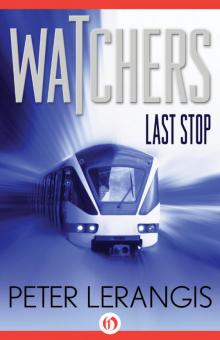 Last Stop
Last Stop Antarctica Escape from Disaster
Antarctica Escape from Disaster Rewind
Rewind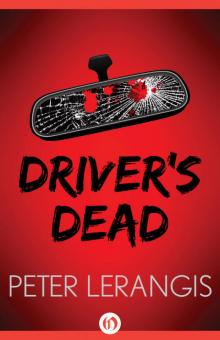 Driver's Dead
Driver's Dead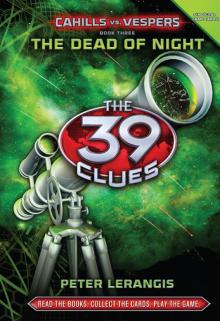 The Dead of Night
The Dead of Night The Promise
The Promise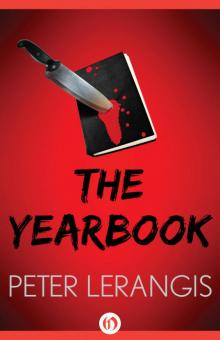 The Yearbook
The Yearbook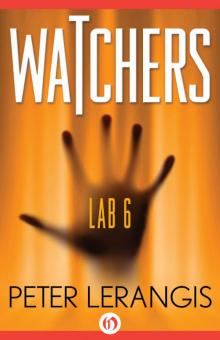 Lab 6
Lab 6 The Tomb of Shadows
The Tomb of Shadows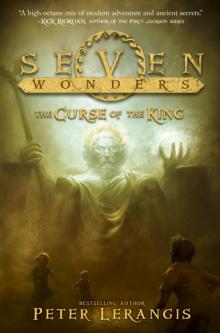 The Curse of the King
The Curse of the King Max Tilt: Fire the Depths
Max Tilt: Fire the Depths The Fall Musical
The Fall Musical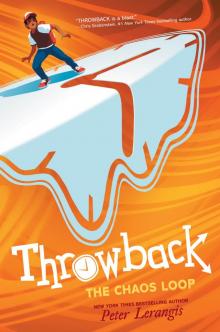 The Chaos Loop
The Chaos Loop Island
Island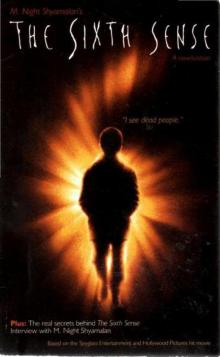 The Sixth Sense
The Sixth Sense Wtf
Wtf War
War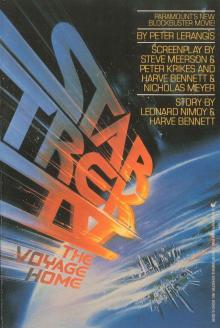 Star Trek IV, the Voyage Home
Star Trek IV, the Voyage Home The Sword Thief
The Sword Thief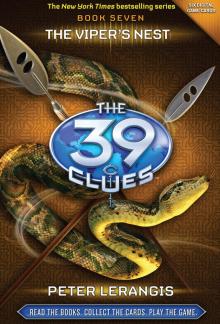 The Viper's Nest
The Viper's Nest The Select
The Select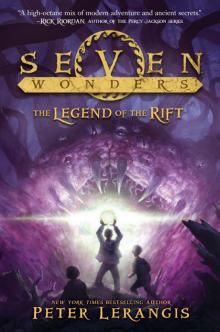 The Legend of the Rift
The Legend of the Rift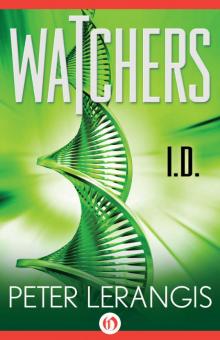 I.D.
I.D. The Sword Thief - 39 Clues 03
The Sword Thief - 39 Clues 03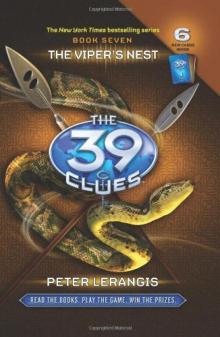 The 39 Clues Book 7: The Viper's Nest
The 39 Clues Book 7: The Viper's Nest Antarctica
Antarctica Seven Wonders Journals: The Select
Seven Wonders Journals: The Select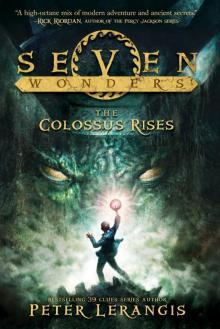 Seven Wonders Book 1: The Colossus Rises
Seven Wonders Book 1: The Colossus Rises Enter the Core
Enter the Core![39 Clues _ Cahills vs. Vespers [03] The Dead of Night Read online](http://i1.bookreadfree.com/i1/04/02/39_clues_cahills_vs_vespers_03_the_dead_of_night_preview.jpg) 39 Clues _ Cahills vs. Vespers [03] The Dead of Night
39 Clues _ Cahills vs. Vespers [03] The Dead of Night Fire the Depths
Fire the Depths 80 Days or Die
80 Days or Die Seven Wonders Book 3
Seven Wonders Book 3